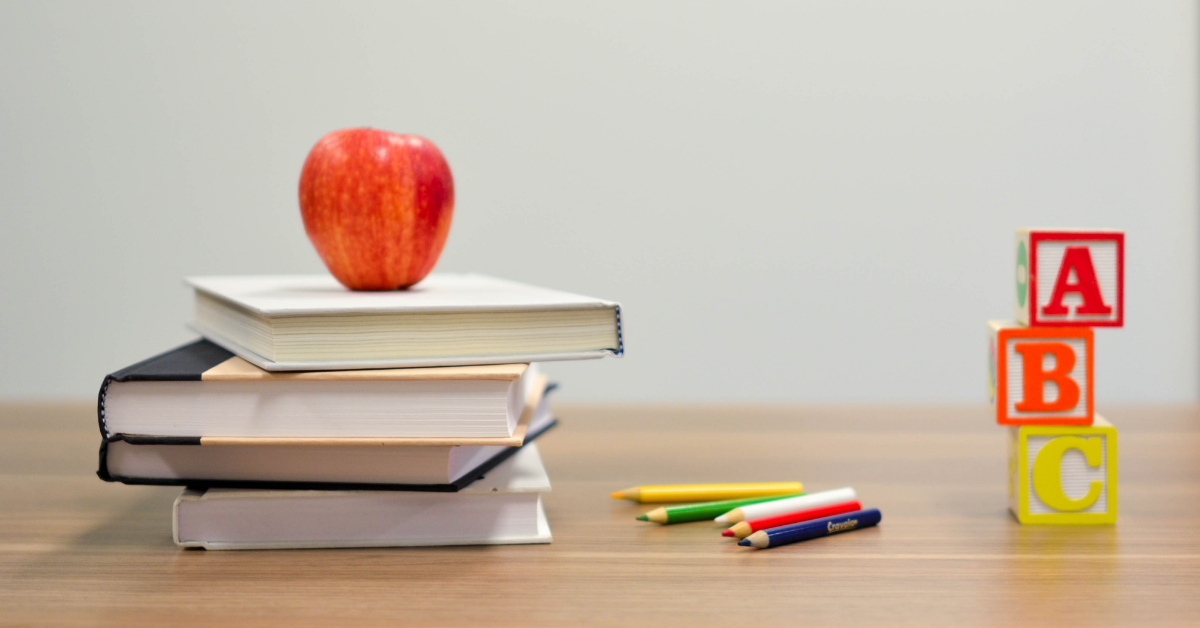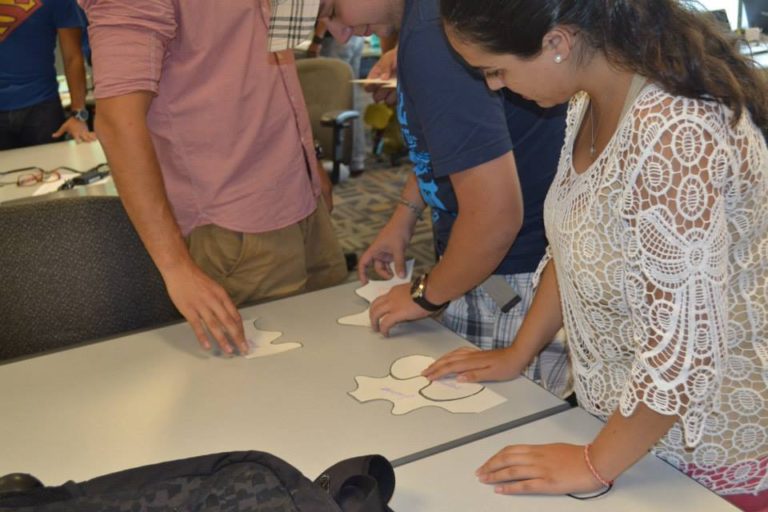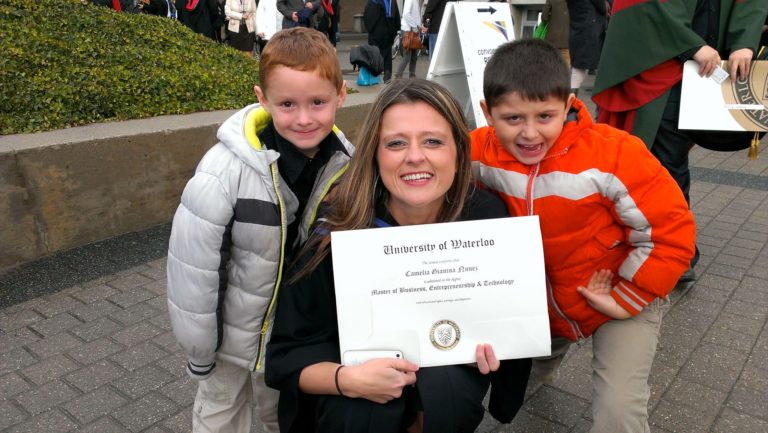I’ve been coming back to this question a lot lately. This is a topic that keeps me up at night and drives me when I wake up in the morning, both as someone who has dedicated their career to education and the mother of three children from kindergarten to highscool.
There is no shortage of people criticizing the current education system and some claiming they’ve found THE solution that will ‘revolutionize’ education forever. At an individual level, they all seem like good ideas, and there are many examples of ‘pockets’ where these ideas have been put into practice and led to successful outcomes. However, in North America and much of the rest of the world, mass education is still in serious need of transformation.
Why do we need a transformation in education?
The bottom line is that our society is so much more different now than it was in the 18th/19th century when mass education as we know it, first started to take shape. Before that, only a select few had access to knowledge and it was mainly controlled by the Church. The 18th century was the beginning of the Industrial Revolution and the mass education system was set up to help meet the needs of the industrialists of the time. Our world today today is exponentially different and what’s even more daunting is that things are changing we can’t even imagine our future. We need an education system that meets the needs of today’s ever changing world and those of a highly unpredictable future.
If you’re interested, this short video by Sal Khan, founder of Khan Academy is a short and helpful walk through the history of education.
Before we attempt to address this challenge it is important to get to the root of it. The fundamental question is: what is the purpose of education? What should we strive to accomplish through education?
The late Sir Ken Robinson, one of my favourite educators, who has written extensively on this topic, breaks the purpose of education down into four basic elements. At its core, our education system has an: economic purpose, cultural purpose, social purpose and a personal purpose. These are the key takeaways from Sir Ken Robinson’s work that resonated with me the most.
The Personal Purpose of Education
I am going to start with the personal aspect because none of the other purposes can be met if we ignore that education is meant to enrich people’s minds, as well as their hearts. At a personal level, the purpose of education is to enable young people to engage with the world within them as well as the world around them. As Sir Robinson puts it, we all live in two worlds: the one that exists whether or not we as individuals are in it, and the world within us, with our own internal thoughts, feelings and perceptions.
What this means is that education can absolutely not ignore the individuality of learners. Therefore, any education system must balance what it wants each learner to know with what matters to them at the individual level. The challenge here is that schools in their vast majority equate intelligence with academics. This leads to high emphasis (if not all) being placed on specific subjects and the scores received in those subjects.
The Social Purpose of Education
The academics-focused approach of mass education has serious repercussions on the social purpose of education as well. The social purpose of education is to enable our students to become active and compassionate citizens. We hope to awaken and nurture learners’ interest in their communities, their cities, their country and the world as a whole. The goal is to empower people to get involved, volunteer, vote etc. The narrow focus on academics (ie. grades) as the main measure of intelligence not only leads us to miss out on tremendous potential, but also alienates learners, who too often end up feeling like what they have to offer is not valued by their society. This of course leads to disengagement and apathy.
Instead, an education system that focuses on the individual as a whole will also lead to the creation of involved citizens who actively participate in the issues that concern their world, their lives and their communities.
The Economic Purpose of Education
The economic purpose of our education system is to enable our students and youth to become economically responsible and independent. The reality is that the path to economic independence today looks a lot different from that of previous generations. According to the World Economic Forum, 65% of today’s children will graduate into jobs that do not yet exist. The future of work and that of learning have always interacted throughout history.
Mass education as we know it has if fact emerged from industry needs for a trained workforce. This was in the 18th and 19th centuries when the biggest demand was for workers who performed highly repetitive jobs. Today, the education system is seriously lagging behind the innovations of the 21st century and that is dangerous. According to the World Economic Forum Future of Jobs report, in the 2020s more than one third of the desired skill sets of each occupation will be skills that had not been considered crucial to that particular job. If schools are to prepare individuals to succeed in the workforce, they need to teach them competencies that will allow them to successfully navigate the changes and uncertainties that lay ahead.
The Individual Purpose of Education
Lastly, schools have an obligation to help individuals understand their culture and that of others. Our world is more interconnected than ever. Companies do business all around the world and we will be a part of the most diverse workforce in history. We must not only learn to become more accepting of each other’s differences, but grow from them together and truly thrive as a species. A report by RBC titled Humans Wanted concluded that among other things, global competencies, like cultural awareness, language and adaptability will be critical in our future. The opposite is happening in Canada for example, where language classes are being cancelled across the country. The weak focus on language and culture in our schools has serious implications and it only takes one look at our world today to realize that a deeper appreciation of our cultural differences would allow us to interact with each other in a much more respectful and accepting way.
Education plays a significant role in each of our lives. It can open our eyes to the world around us and give us the foundations on which we build our presents and futures. For many, education is the only way to overcome the challenging realities they were born into. Unfortunately, our education system continues to be defined by the needs of the industrial revolution and remains based on standardization and conformity. As a result, as it stands, our education system is failing to deliver on its most basic purposes and that needs to change.
Schools don’t need to be these conventional facilities with rigid schedules and bells. Instead, we should strive to turn schools into communities where people come together because they are excited to learn with and from each other.
The Current Reality
Education plays a significant role in each of our lives. It can open our eyes to the world around us and give us the foundations on which we build our present and future. For many, education is the only way to overcome the challenging realities they were born into.
Unfortunately, our education system continues to be defined by the needs of the industrial revolution and remains based on standardization and conformity. As a result, as it stands, our education system is failing to deliver on its most basic purposes and that needs to change.
The good news is that schools don’t need to be these conventional facilities with rigid schedules and recess bells. Instead, can turn schools into communities where people come together because they are excited to learn with and from each other. How will we do that? By having conversations like this and putting forward ideas. Change will come from the advocates within the current system as well as from the outside.




